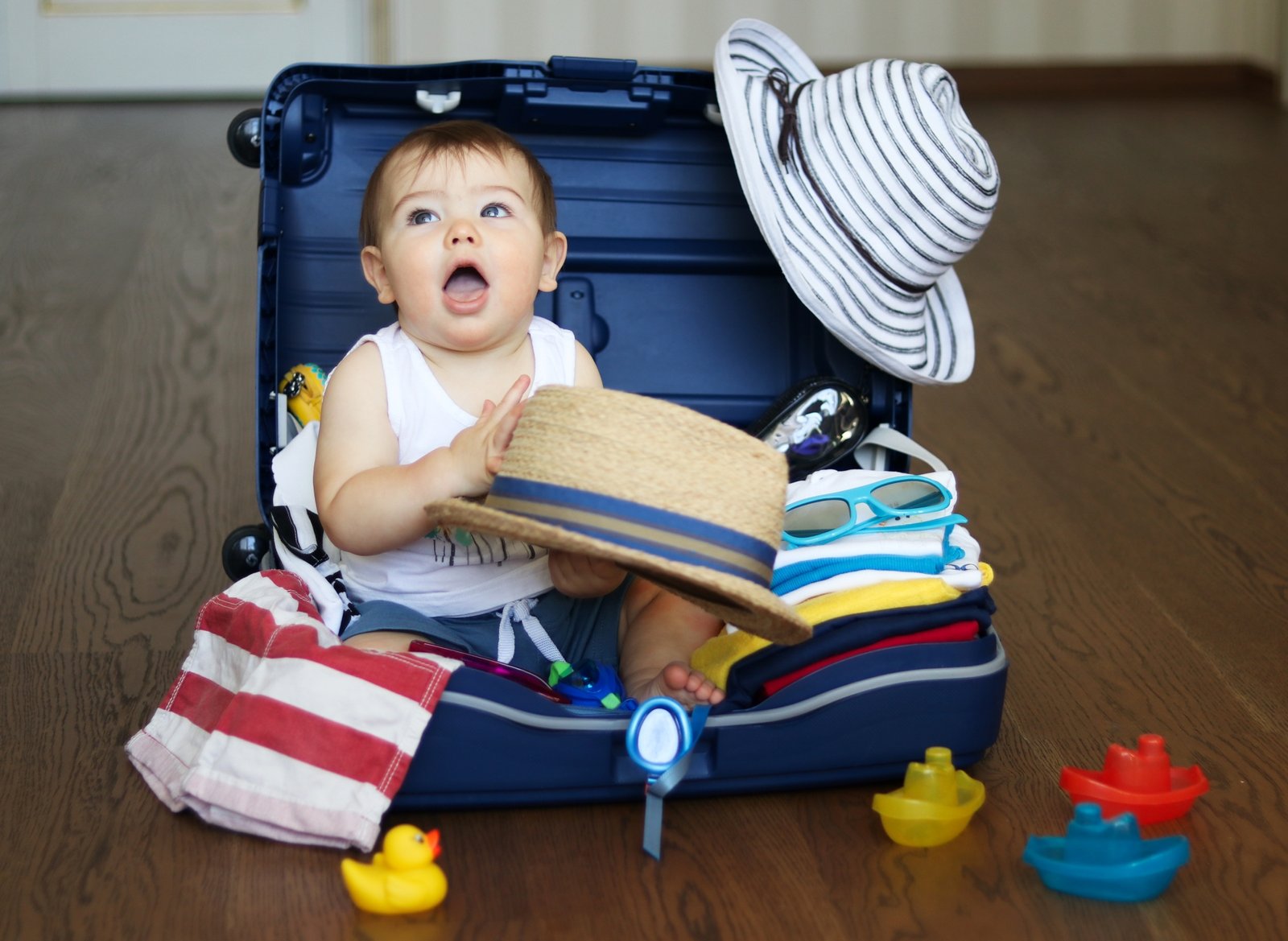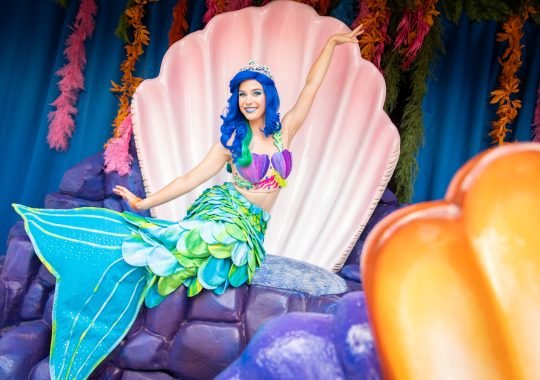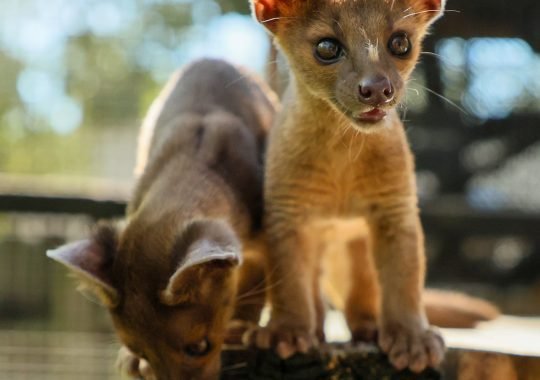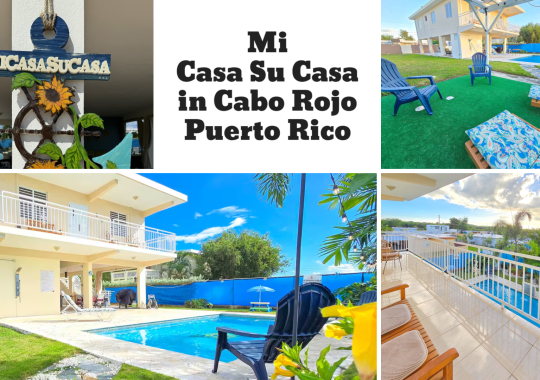|
Getting your Trinity Audio player ready...
|
Traveling with a baby requires careful planning to ensure safety, comfort, and a smooth experience. Many parents make common mistakes that create unnecessary stress and potential health risks for their children.
From packing the right essentials to choosing baby-friendly accommodations, every detail matters when traveling with an infant. Failing to plan can lead to last-minute struggles that make travel more exhausting than it needs to be.
Avoiding such mistakes would help you have a more satisfying and stress-free trip. Here are some common mistakes to avoid while traveling.

Overpacking or Underpacking Essential Items
Packing the right amount of baby essentials helps create a more manageable and stress-free trip. Many parents either overpack with unnecessary items or forget crucial supplies like diapers and formula. A smart approach involves choosing versatile baby gear and staying prepared for unexpected situations:
- Use a lightweight stroller and compact diaper bag to save space and improve mobility.
- Pack extra diapers, wipes, and travel-sized baby products for added convenience during travel.
- Bring enough formula and baby clothes to handle spills, delays, and changing weather conditions.
Moreover, Statista notes that the U.S. experiences diverse weather due to its geography, large size, and contrasting climate patterns.
Rising temperatures have intensified extreme weather, causing over 2,500 weather-related deaths between 2020 and 2024. With temperatures increasing, experts predict even more drastic shifts in U.S. weather patterns this decade.
Therefore, checking the weather forecast is also important as it helps pack suitable clothing based on the destination’s climate conditions.
Bringing familiar items like a baby blanket provides comfort in new environments. Ensuring everything is well-organized makes items easier to find when needed. Packing efficiently allows for easier mobility through airports, train stations, and other travel hubs.
Should I bring my baby’s car seat when traveling?
A car seat provides essential safety during travel, especially in taxis and rental cars. Many airlines allow parents to check car seats for free or use them on flights. Personal car seats ensure hygiene and familiarity, while rental options may have wear and tear.
Overlooking Feeding Safety and Nutrition
Safe feeding practices prevent digestive issues and ensure a baby receives proper nutrition while traveling. Some parents unknowingly prepare baby formula using unsafe water sources, leading to potential health concerns. Premature infants are particularly vulnerable to contaminated water and improperly prepared formula.
Using pre-packaged formula or ready-to-feed bottles minimizes exposure to unsafe water sources during travel. Additionally, cow’s milk-based formulas have been linked to necrotizing enterocolitis (NEC) in preterm newborns.
NIH states that cow’s milk protein (CMP) has been repeatedly linked to NEC. Research shows extremely premature infants have lower NEC rates when fed exclusively human milk, including human milk-based fortifiers. Studies also associate bovine-based fortifiers with increased NEC risk, but high-quality trials are still needed.
According to TorHoerman Law, some baby formula manufacturers have faced lawsuits for failing to warn parents about these health risks. Parents whose babies developed NEC may be eligible to pursue lawsuits against formula companies. Checking product labels and consulting a pediatrician helps ensure safe feeding choices.
The NEC baby formula lawsuit highlights the importance of holding manufacturers accountable for unsafe products that may harm infants. Choosing properly regulated baby formula brands provides added confidence in your baby’s nutrition. Proper feeding practices keep babies healthy during travel.
How can I safely clean baby bottles while traveling?
Using portable bottle sterilizers ensures proper sanitation when kitchen facilities are unavailable. Disposable bottle liners provide a hygienic solution for travel and eliminate the need for frequent washing. Travel-sized dish soap and a bottle brush help maintain cleanliness when washing bottles in hotel sinks.
Disrupting Sleep Schedules Without a Backup Plan
Maintaining a consistent sleep routine during travel helps babies adjust more easily to new environments. Many parents assume babies will automatically sleep well in unfamiliar places without proper preparation. New surroundings, noise, and travel fatigue can disrupt regular sleep schedules, causing stress.
Bringing familiar sleep aids like a favorite blanket or white noise machine can provide added comfort. Gradually shifting nap times before travel can ease the transition across different time zones. Road trips planned around nap schedules can help babies rest peacefully during long journeys.
As per Sleep Foundation, infants between 4-12 months need 12-16 hours of sleep daily, including naps. Toddlers aged 1-2 years require 11-14 hours of sleep each day, ensuring proper growth and brain function. Preschoolers need 10-13 hours, while school-age children between 6-12 years should get 9-12 hours nightly.
Booking accommodations with quiet sleeping areas helps create a comfortable sleep environment. Blackout curtains and portable cribs provide a sense of normalcy for better rest. Ignoring sleep patterns can lead to fussiness and difficulty adjusting to the new schedule.
How do I handle naps when traveling all day?
Planning travel schedules around nap times helps maintain sleep consistency. Car rides, stroller walks, and baby carriers can be used to help babies nap while moving. Keeping nap durations similar to home routines prevents excessive sleep deprivation and overtired fussiness.
Ignoring Health and Safety Precautions
Researching medical facilities near your destination helps ensure quick access to care during emergencies. Parents often assume all travel locations provide the necessary healthcare for infants without prior research. Carrying a first-aid kit with fever medication, antiseptic wipes, and baby pain relievers is essential.
GovTech mentions that first aid kits are widely available, with prices ranging from $20 to over $400. Costs vary based on the number of items and how many people the kit will serve. Medicines should always remain in their original containers to ensure safety and maintain their intended shelf life.
Sanitizing public areas like airplane tray tables and rental car seats reduces exposure to harmful germs. Using disinfectant wipes before placing your baby on public changing tables improves hygiene. Offering a pacifier or bottle during takeoff and landing can help prevent ear discomfort.
Sudden temperature changes may require additional clothing layers to keep your baby comfortable. Ensuring your baby stays hydrated throughout the trip helps prevent potential dehydration.
Can I use regular sunscreen on my baby while traveling?
Newborns should avoid direct sunlight and instead rely on shade and protective clothes. For older infants, baby-safe sunscreen with SPF 30 or greater is enough protection. Apply sunscreen 15 minutes before exposure and reapply every two hours to ensure efficacy.
Traveling with a baby comes with challenges, but smart planning makes the journey much easier. Prioritizing essentials like feeding, sleep, and safety creates a smoother, stress-free experience for parents and babies. Understanding risks such as contaminated water or disrupted routines helps parents prepare for unexpected situations.
Anticipating needs and staying flexible allow parents to handle travel obstacles with confidence. Turning travel into a positive experience requires adapting to changes and staying well-prepared throughout. With the right approach, trips become enjoyable opportunities for family bonding. Informed parents can navigate baby travel challenges while ensuring safety, comfort, and unforgettable memories.



